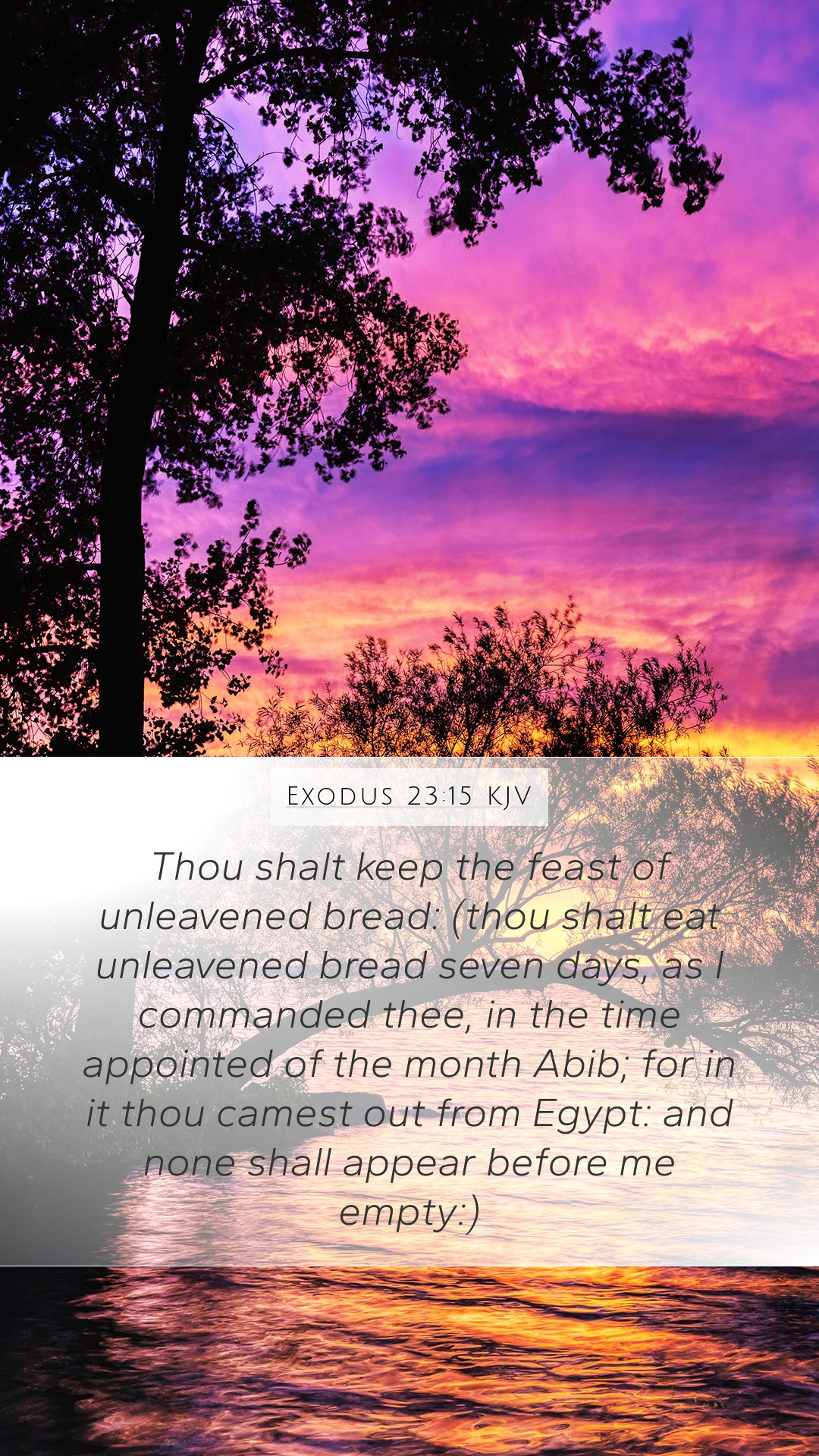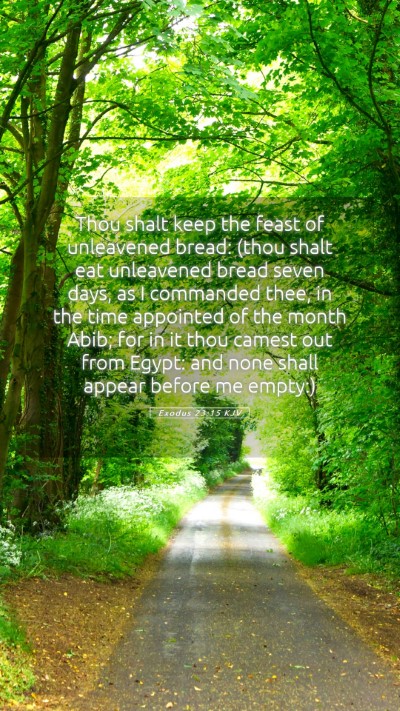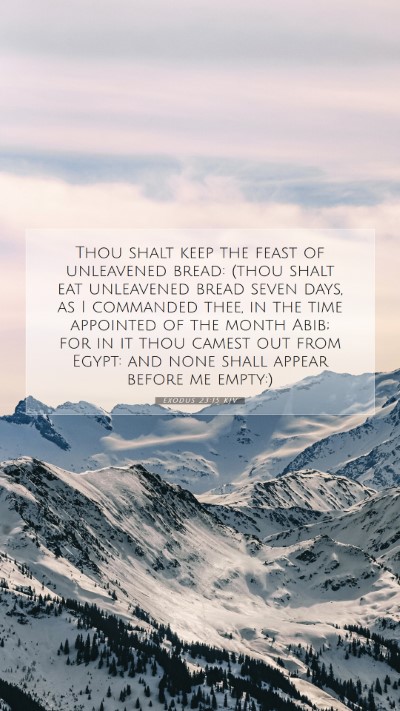Understanding Exodus 23:15 - A Comprehensive Commentary
Exodus 23:15 states, "You shall keep the Feast of Unleavened Bread. You shall eat unleavened bread for seven days, as I commanded you, at the time appointed in the month of Abib, for in it you came out of Egypt. None shall appear before Me empty-handed."
Overview of Exodus 23:15
This verse is part of the Lord's instructions to the Israelites regarding the observance of specific feasts and sacrifices, emphasizing the importance of these rituals in their covenant relationship with God. The Festival of Unleavened Bread, which commemorates the exodus from Egypt, holds profound significance in Jewish worship and serves as a reminder of their deliverance.
Bible Verse Commentaries
Various public domain commentaries provide deeper insights into the meaning of this verse:
-
Matthew Henry's Commentary
Matthew Henry emphasizes the spiritual symbolism of the Feast of Unleavened Bread. He interprets the unleavened bread as representing purity and sincerity, urging the Israelites to cleanse their lives from sin as they remember their past deliverance. Furthermore, he notes that coming before God with offerings signifies acknowledgment of His goodness and grace, showing that spiritual festivals should not be observed carelessly but with gratitude and reverence.
-
Albert Barnes' Notes
Albert Barnes highlights the historical context of this command. He points out that the Feast of Unleavened Bread was instituted as a reminder of the hasty departure of the Israelites from Egypt, where they had been oppressed. This urgency also signifies the need for spiritual readiness and commitment to God. Barnes suggests that the command not to appear empty-handed underscores the principle of giving thanks to God for His provision and favor.
-
Adam Clarke's Commentary
Adam Clarke focuses on the details of the rituals and their importance in community worship. He explains that participation in such feasts not only strengthens individual faith but also fosters communal bonds among the Israelites. Clarke notes that the specific time for the feast (the month of Abib) reminds them of God’s sovereignty over their lives and His deliberate plan for their deliverance and sustenance.
Theological Significance
The theological implications of Exodus 23:15 serve multiple dimensions of Bible verse understanding:
-
Celebration and Remembrance:
The feast acts as a ritualistic remembrance of God's saving acts, indicating that the community must continually remember and celebrate their past deliverance.
-
Purity in Worship:
The instruction to eat unleavened bread suggests a call to spiritual purity, which serves as a metaphor for the believer’s need to live a life free from sin as they approach God.
-
Faithful Stewardship:
Coming before God with offerings signifies the principle of stewardship, encouraging believers to acknowledge God's blessings and respond appropriately with gratitude.
Application in Modern Life
For contemporary readers, applying the teachings of Exodus 23:15 can manifest in various aspects:
-
Commitment to Rituals:
Engaging with spiritual disciplines, such as regular worship and prayer, can help individuals remember God's faithfulness in their lives.
-
Spiritual Integrity:
Striving for a life of integrity and purity, mirroring the unleavened bread's symbolism, can aid in living out one's faith authentically.
-
Acts of Thanksgiving:
Recognizing God's blessings and practicing generosity can reinforce the importance of gratitude and stewardship in one's faith journey.
Related Bible Cross References
- Exodus 12:15 - Instructions on removing leaven during Passover.
- Leviticus 23:6-8 - The code for the Feast of Unleavened Bread.
- Deuteronomy 16:16-17 - Further instructions on the feasts and offerings.
Conclusion
Exodus 23:15 encapsulates essential principles of Bible verse meaning, emphasizing the importance of remembrance, purity, and gratitude in worship. By interpreting this verse through the lens of public domain commentaries, believers gain insights into how historical practices apply to modern faith, promoting a deeper understanding of Scripture and encouraging spiritual growth.


